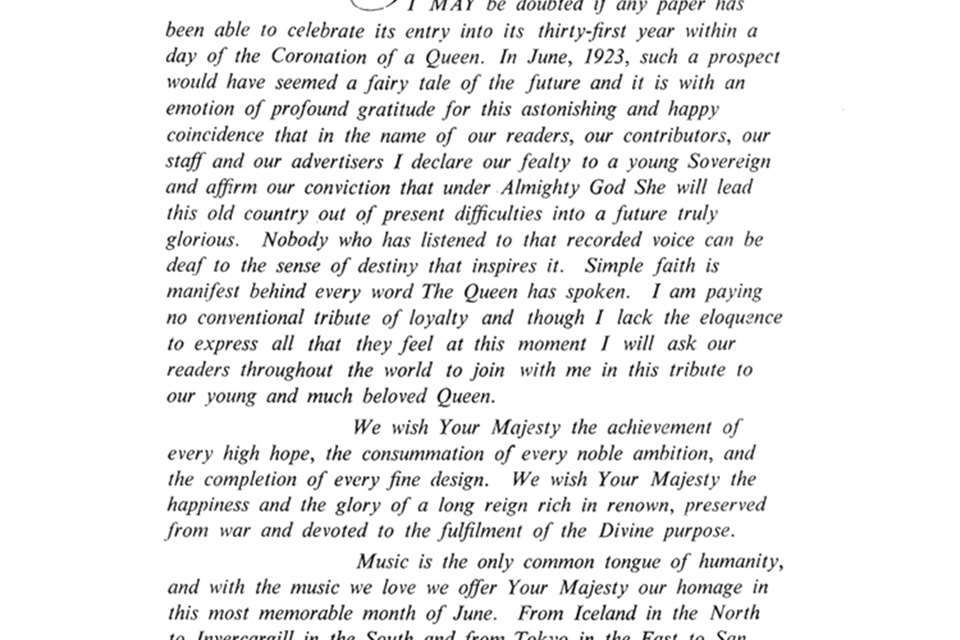The Platinum Jubilee: a guide to concerts and events across the UK
Jack Pepper
Friday, May 27, 2022
Choirs, bands and orchestras throughout the UK are celebrating the Platinum Jubilee - Jack Pepper highlights some of the best events, and offers a playlist of music to enjoy
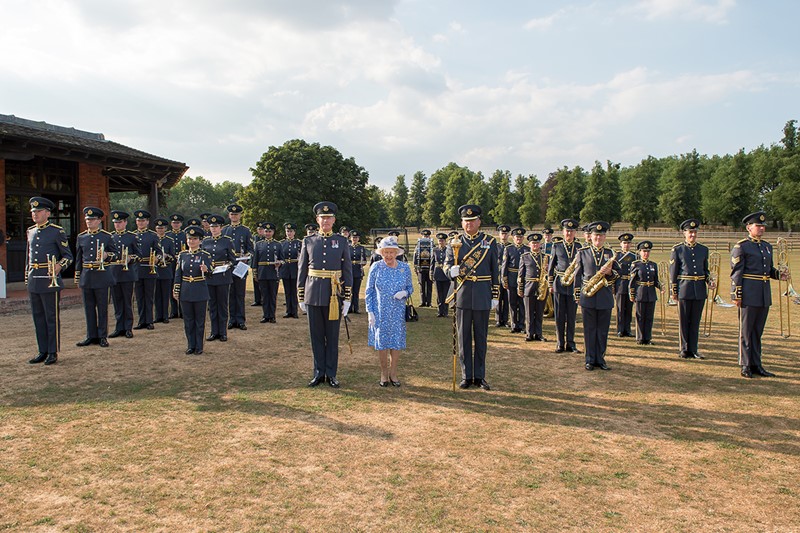
HM The Queen and the Central Band of the RAF at Windsor Cricket ground in July 2018 (photo: Crown Copyright 2022)
In February, the Queen became the first British monarch ever to celebrate 70 years on the throne: a Platinum Jubilee.
It is staggering to think of the names, changes, challenges and opportunities faced by the musical world in this time.
In this two-part feature, we’ll encounter the likes of Benjamin Britten, Judith Weir, the Band of HM Royal Marines, Elizabeth Maconchy, the choirmaster who led Princess Elizabeth in madrigals in the Second World War, the ORA Singers, a Nigerian priest-turned composer, the Military Wives Choirs and bagpipers…
The Queen’s history is also a musical history: a reign reflected in music. In celebrating the Queen, we can also celebrate the vibrant musical life of the UK and the Commonwealth.
Explore our playlist of jubilee-themed music:
2 – Central Band of the Royal British Legion
5 – Cardiff Castle Jubilee Concert
9 – Royal Liverpool Philharmonic Orchestra
10 – City of Birmingham Symphony Orchestra
12 – London Philharmonic Orchestra
Before we dig deeper into this rich musical tapestry, there’s an intriguing question. Is the Queen musical? Well, in 2016, Lady Elizabeth Anson – her cousin – said that 'The Queen is a fantastic dancer. She’s got great rhythm'.
She learned to play the piano from the age of 11; there are pictures of her duetting with Princess Margaret at Windsor Castle in 1940 (apparently a particular favourite of theirs was Walford Davies’s 1937 work Big Ben Looks On, an orchestral piece that was arranged for piano duet).
I have it on good authority that these days a bagpiper plays for Her Majesty every morning (which beats an alarm clock).
She has visited the Royal Albert Hall 124 times in 96 years. True, she was 68 before she attended her first BBC Prom.
But when you are Patron to over 600 charities and organisations around the world, everything is a delicate balance…
The Queen does have a long history of attending concerts. In 1938, as Princess Elizabeth, she joined her sister and mother in attending the catchily-titled National Festival of the School’s Music Festivals of England, hearing a youth choir of thousands.
In 1944, she celebrated Sir Henry Wood’s 75th Birthday and 50 years of his Proms concerts in an event at the Royal Albert Hall.
Then, as Queen, she attended a St Cecilia’s Day concert in 1955, raising money for the Musician’s Benevolent Fund, with Arthur Bliss guiding her around the Royal Festival Hall; three years later, she was back there to support a concert given by the Hallé Orchestra for the same cause.
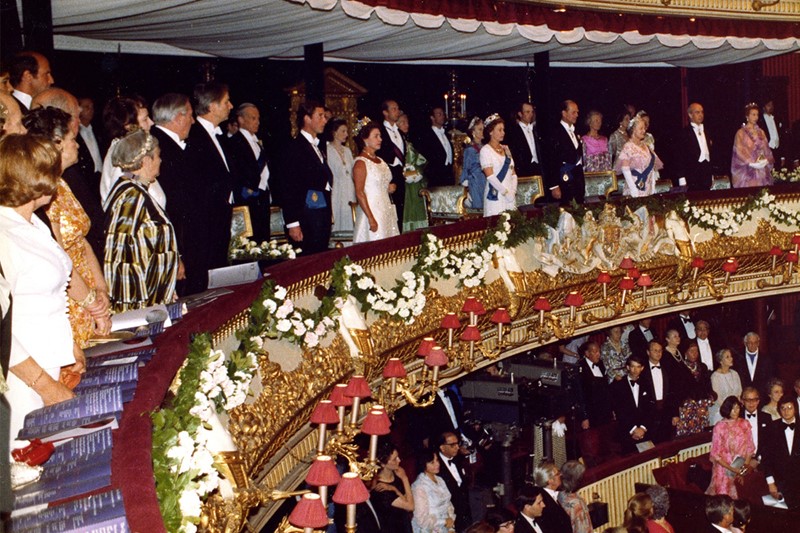
Her Majesty Queen Elizabeth at a Royal Opera House Gala Performance for her Silver Jubilee (photo: Donald Southern/ROH 1977)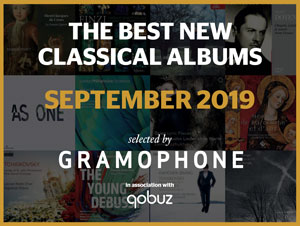
In 1986, the Queen enjoyed an electric gala concert from the London Symphony Orchestra conducted by Leonard Bernstein (Gidon Kremer playing Bernstein’s Serenade is a must-watch on the LSO Live YouTube channel).
The Golden Jubilee in 2002 saw major classical artists like Kiri Te Kanawa and Mstislav Rostropovich join the Queen on the balcony of Buckingham Palace, whilst Bryn Terfel sang in a special concert for her 80th Birthday.
In 2007 came an exclusive violin recital at the Royal Academy of Music (RAM), whilst 2016 saw the Queen sit in on an East London rehearsal of the National Youth Orchestra of Great Britain (NYOGB).
The Queen is Patron of both the RAM and the NYOGB… and many more: the London Symphony Orchestra, the Associated Board of the Royal Schools of Music and Help Musicians UK, to name a few. Also on the list is the Piobaireachd Society, which promotes classical music for bagpipes.
Patronage provides important recognition of key organisations and charities, a confidence and prestige boost for a sector that needs all the support it can get.
This extends to recognition of individual musicians; in 2005, Her Majesty inaugurated the Queen’s Medal For Music, an annual award for a musician or group who have been a force for good in British musical life.
Sir Charles Mackerras was its first recipient and has since been followed by the likes of Colin Davis, Emma Kirkby and Nicola Benedetti.
Of course, back in 1953, the Coronation saw a unique coming-together of the crème of British musical talent.
Adrian Boult conducted a special ‘Coronation Orchestra’ assembled for the service; each violinist was the leader of a major British orchestra or chamber ensemble. It was the elite of the elite.
The same can be said for the vocal forces, which (amazingly) included the choirs of the Chapel Royal, St George’s Chapel, Windsor, Westminster Abbey and St Paul’s Cathedral.
To bolster these modest forces were 20 trebles from parish churches across the UK. This led to a grand total of 348 singers, plus 60 orchestral musicians!
There is also one little-acknowledged link between the monarch and music. Military bands provide work for an astounding range of talented musicians.
The catastrophic financial impact of the COVID pandemic saw top players leave the classical orchestral world to join military bands.
It is a depressingly rare privilege for a British musician to have full employment and a regular paycheque, plus university degrees and other qualifications paid for… not to mention the chance to perform on aircraft carriers, the forecourt of Buckingham Palace and at James Bond film premieres.
Military bands are a major employer of talented musicians, and the Queen – as Commander-in-Chief – is technically their boss.
With such links to musical venues, charities and performers, it is no surprise that the Platinum Jubilee will provide a spectacular musical showcase.
Performers have already begun the celebrations; in March, the Royal Albert Hall hosted the Royal Philharmonic Concert Orchestra conducted by Mike Dixon, performing music from the 1953 Coronation as part of a Jubilee Concert organised by Armed Forces charity SSAFA (of which The Queen is Patron).
Elsewhere, St Paul’s Cathedral have been asking young singers to join their ‘Choir for the Queen’, inviting schools to sing and record a favourite hymn and share online using the #ChoirfortheQueen hashtag.
Notes have been sounded far beyond the UK, too; in April, school choirs in Quebec, Canada, performed the work of Samuel Coleridge-Taylor and Gustav Holst, to the visual accompaniment of the Queen’s 1957 and 1959 visits to the country.
The Jubilee promises to be a spectacular musical coming-together of genres, regions and nations. Here are some of the top UK performers and performances to listen out for, alongside some suggested home Jubilee listening…
Choir of the Earth
June 2; online
Could this be the world’s biggest choir rehearsal? There has been an open invitation to join a Commonwealth ensemble in learning and recording a new arrangement of God Save The Queen; it has been made especially for the Jubilee by Ralph Allwood, the former Director of Music at Eton College.
Singers have been signing up through the Choir of the Earth’s website throughout the year, with access to a series of online sessions with Allwood and a special rehearsal week in March.
Soon, the voices will be combined and accompanied by Luke Bond on the organ of St George’s Chapel, Windsor Castle. The final mix will be sent to the Queen’s Private Secretary on the June 1, with an online public premiere released he following day.
Before we enjoy this virtual global musical gathering, we can admire the magical setting of the National Anthem made by Benjamin Britten for the 1961 Leeds Festival.
Perhaps unexpectedly for a patriotic hymn, it begins pianissimo, lending the melody a mysterious clothing.
Contrast is everything in this arrangement. The fragile opening gives way to a second verse in fortissimo, with ingenious textural overlapping on the phrase ‘God Save The Queen’, where the human voice almost mimics the pealing of bells.
It’s a remarkable work that underlines the power of a good arrangement to reveal something new in the familiar.
Central Band of the Royal British Legion
May 28; Canterbury Cathedral, Kent
The Central Band of the Royal British Legion will be visiting Canterbury Cathedral for the first time since 2010, celebrating the Jubilee and simultaneously raising funds for the Friends of Canterbury Cathedral with their ‘FRIENDly Platinum Prom’.
The Royal British Legion is the UK’s largest Armed Forces charity, providing lifelong support to serving and former personnel and their families.
The Central Band itself draws upon former military musicians; its current Musical Director is David Cole, who served in the Royal Marines Band Service for 32 years (including as their Director of Music).
Cole began as a conducting student at the Royal Academy of Music, and these days is the regular musical director for the annual Festival of Remembrance. He was awarded membership of the Royal Victorian Order by the Queen.
The Central Band was created by military musicians. It was founded by members of the World War Two Home Guard, who came together to play music in Epsom, Surrey.
When the threat of Nazi invasion receded, the Home Guard – and thus the band – was stood down.
But the Epsomites didn’t want to lay down their instruments, and so regrouped as a new band under the banner of the Royal British Legion.
They have a long history of performing at royal events, including a memorable appearance on the forecourt of Buckingham Palace as the Queen handed a baton to an athlete as part of the Commonwealth Games.
They also have a strong association with classical music; they joined the Royal Philharmonic Orchestra to perform a Peter Maxwell Davies premiere to mark 60 years since the end of the Second World War in 2005.
Before they appear at Canterbury Cathedral, we can enjoy the Band’s recording of a rather-filmic ‘I Vow To Thee’.
Expect dramatic ostinati from the percussion section, a driving tempo and rising brass chords before Holst’s majestic melody soars in over the top.
What better piece than this to summarise a band, a charity and a Monarch who are the epitome of service?
Royal Opera House
June; London
The Royal Opera House’s relationship with the Queen stretches back to the very night of the Coronation; Sadler’s Wells Ballet performed Homage To The Queen: The Coronation Ballet, with choreography by Frederick Ashton and music by Malcolm Arnold.
The Queen returned to Covent Garden for a Golden Jubilee Gala in 2002.
For the Platinum celebrations, there’s a limited-edition tour created exclusively for this year. ‘A Very Royal Opera House’ will take you through the theatre’s Royal spaces, allowing you to see areas like King Edward’s former smoking room and the Royal Box.
The Schomerg Society
June 2; Kilkeel, County Down
Northern Ireland’s Schomberg Soceity is an Ulster-Scots cultural community group who promote local heritage and traditions; they have their own Fife and Drum Band who dress in traditional 17th century uniforms and give musical classes to all ages.
They have organised a Platinum Jubilee Tattoo, which will bring together some of Northern Ireland’s greatest marching bands; they share the billing with seventy Highland dancers – one for each year of The Queen’s reign – a swing band, world champion Drum Majors and a choir. The Tattoo is free and open to all.
The Queen’s reign has coincided with some great – but often little-acknowledged – musical talent emerging from Northern Ireland.
A recent personal discovery was composer Joan Trimble (1915-2000), who studied with Vaughan Williams and Howells and made her name as one half of a piano duo with her sister.
She had an opera commissioned by and broadcast on the BBC in 1957 (Blind Raftery, believed to be the first TV opera written by a woman). She also penned some infectious dances for piano, as heard on this sunshine-filled Marco Polo album. Ideal toe-tapping music to accompany your Jubilee celebrations.
Cardiff Castle Jubilee Concert
June 4; Cardiff
Welsh orchestras, choirs, bands and pop stars are uniting for a spectacular concert at Cardiff Castle.
Among them will be the Pendyrus Male Voice Choir. They are the oldest established choral organisation in the Rhondda Valley, having been created in 1924 by two out-of-work miners who formed a male voice choir to stave off the boredom of unemployment.
They enlisted the local baker to become their conductor. Since their inaugural concert overlooking the colliery, they have appeared at the Royal Albert Hall and Royal Festival Hall, and in 1979 became the first Western European choir to tour the Soviet Union (which included a concert in the Kremlin).
They’ve even given an informal concert inside the White House. For Cardiff’s Jubilee celebrations, they are on a line-up that also includes Bonnie Tyler and West End legend John Owen-Jones.
One of the prominent Welsh classical talents to flourish under the Queen’s reign was William Mathias (1934–1992).
Born in Carmarthenshire, he was a lecturer at Bangor University and made his home on Anglesey with a rather spectacular view of the Menai Strait; this was where he chose to do much of his writing.
This sprightly anthem, Let The People Praise Thee, O God, was composed for the wedding of the Prince and Princess of Wales in 1981.
Military bands: Bands of The Household Division, The Band of HM Royal Marines, musicians from RAF Music Services
June 2 – June 5 (Jubilee Weekend); London
The Jubilee Weekend launches on Thursday June 2 with a supercharged-version of the annual Trooping The Colour ceremony, which has marked the official birthday of the British Sovereign for more than 260 years.
Over 1200 soldiers and 240 horses will parade, accompanied by hundreds of Army musicians from the Bands of the Household Division; there will also be an RAF flypast of seventy aircraft for the Queen’s seventy years on the throne.
Although tickets for the Horse Guards Parade area are sold out, there will be space for the public to watch the troops parade between the Palace and the parade ground, plus large screens will show the whole event in St James’s Park; it will also be broadcast live on the BBC and on Sky.
Friday June 3 will see the Fanfare Trumpets of the Central Band of the Royal Air Force participate in a Service of Thanksgiving at St Paul’s Cathedral.
Later, the Royal Air Force Salon Orchestra and a wind quintet from the Band of the RAF Regiment will provide the accompaniment to a private reception after the service, in the presence of Her Majesty.
Meanwhile, the RAF’s Fanfare Trumpets will be back on Saturday 4, performing at the Platinum Party at the Palace.
Sunday June 5 will see yet more military musicians take to the streets, with the Platinum Jubilee Pageant Parade.
10,000 people will participate, with musicians from each branch of the Armed Forces leading their contingent of marching personnel; among them, expect an epic coming-together of RAF players in the Combined Bands of the Royal Air Force.
The Gold State Carriage will pass through London in four ‘acts’, culminating outside Buckingham Palace with a rendition of the National Anthem from a gospel choir and the Band of Her Majesty’s Royal Marines.
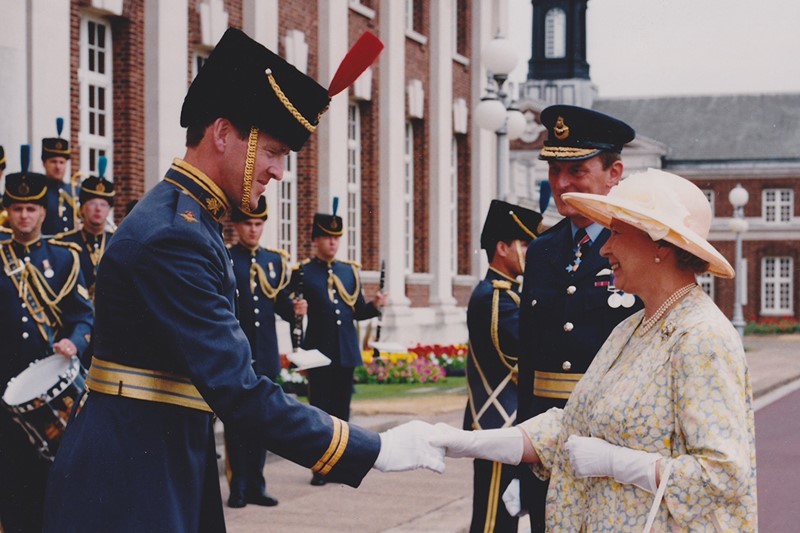
Flight Lieutenant Duncan Stubbs and Band of the RAF College at HM The Queen's Review of the Officer Graduation at RAF College Cranwell, 1995 (Photo: Crown Copyright 2022)
The Chandos album linked to below was released to mark the Centenary of the RAF, whose musicians have a close relationship with the Queen; the RAF Salon Orchestra helped provide the music to accompany the Queen’s Speech in December 2019, whilst more recently RAF Music Services gave musical support for the Funeral and Memorial Service of HRH the Duke of Edinburgh.
Looking ahead, the Band of the RAF will be performing Public Duties (Changing of the Guard) at Buckingham Palace this July and at Windsor Castle in September.
Diamond Nine is the work of former RAF Director of Music (DoM), Duncan Stubbs (see above); he began his career playing bassoon in local orchestras, before joining the RAF in 1983 and rising to the rank of DoM within seven years (which made him one of the youngest-ever commissioned DoMs in all three branches of the British military).
His piece is named after a particular flying formation. For more details visit: platinumpageant.com
ORA Singers
June 11; Bury St Edmunds, Suffolk
A choir celebrating two Elizabethan ages feels like an appropriate fit for this Jubilee. Created by Suzi Digby in 2016, the ORA Singers believe that we are in another Golden Age for British choral music; they have commissioned over 50 new choral works, with the aim of commissioning 100 new pieces by 100 contemporary composers within 10 years.
I joined the judging panel for their 2021 ORA Singers Young Composer Competition, in which 10 state school pupils had the chance to hear their own music performed by the ensemble.
Each new piece was a reflection on a specific Renaissance work, and so to me the ORA Singers are a powerful symbol of old and new; of how the past feeds in to the present, a ‘golden bridge’ from then to now.
This makes them the ideal group with whom to celebrate the Platinum Jubilee. As part of the Aldeburgh Festival, the ORA Singers and Suzi Digby will appear at Bury St Edmunds Cathedral on the June 11, presenting music written during both Elizabethan periods.
On the programme will be a premiere of a Britten Pears Arts commission from Irish composer (and winner of the 2019 ORA Singers Young Composer Competition) Aine Mallon (b1994).
But we’re taking a trip back in time for this recording, in which the ORA Singers perform music by a legendary composer for Elizabeth I.
Some scholars believe Thomas Tallis wrote his Spem In Alium for the Queen’s 40th Birthday in 1573, with 40 voice parts for her 40 years.
Aldeburgh Festival
June 14; Snape Maltings Concert Hall, Aldeburgh, Suffolk
We’re staying in Suffolk and zooming in on the Aldeburgh Festival, which has enjoyed a prominent relationship with the Queen.
When Benjamin Britten wrote to Buckingham Palace to see if the Monarch might open the Festival’s new concert hall, a handwritten reply from The Queen gave a firm ‘yes’.
And so, in 1967, The Queen and The Duke of Edinburgh had lunch with Britten at The Red House and opened The Maltings.
After it burnt down in 1969, the Queen is said to have personally telephoned the composer. She returned to Suffolk to open the newly-rebuilt Hall in June 1970.
As part of this year’s Aldeburgh Festival, the BBC Singers and Owain Park will celebrate the Jubilee with a performance of A Garland For The Queen; it’s a unique collection of choral pieces by English composers who teamed up to present this musical gift for the Coronation.
Royal Liverpool Philharmonic Orchestra
May 31; Liverpool Philharmonic Hall, Liverpool
The Queen has been Patron of the Royal Liverpool Philharmonic Orchestra since 1958, recognising a history-making ensemble: the RLPO lays claim to be the UK’s oldest continuing professional symphony orchestra and one of the world’s oldest concert societies.
This stalwart of British orchestral life will lead a tribute to The Queen with a ‘best of British’ concert with Frank Bridge’s Dance Rhapsody, Elgar’s Cello Concerto (soloist Nicolas Altstaedt) and Vaughan Williams’s Job.
For our Jubilee playlist, I’ve continued in this quest to highlight important and colourful works of British music.
Dora Bright (1862–1951) had a Royal pedigree; she had such success with a vocal piece in 1903, King Edward VII personally requested another performance of it the following year.
He was frustrated to have missed the acclaimed premiere due to ill health.
In this recording from the RLPO, though, the spotlight falls on the tender slow movement of her Piano Concerto.
City of Birmingham Symphony Orchestra
June 2; Symphony Hall, Birmingham
The CBSO’s Patron is Prince Edward, who can quite possibly be called a ‘regular’. He attended a concert at Symphony Hall in June 2019 – hearing Mahler’s Second Symphony – and had only made his previous visit to the orchestra in the last year.
Visits on consecutive years are fairly unusual in the Royal calendar, so such regular support ‘on the ground’ in this manner could be read as quite a statement.
The CBSO will celebrate their patron’s mother with a Platinum Jubilee Concert showcasing music from the Commonwealth, personal favourites of the monarch, music dedicated to her and pieces from the Coronation.
Cellist Abel Selaocoe and bagpipes will feature, plus Elgar’s Nursery Suite (written for the Queen when she was a toddler) and Eric Coates’s The Youth Of Britain.
That last piece is the final segment from The Three Elizabeths, which explores generations of the British Royal Family.
The opening movement highlights Elizabeth I; the second suggests Elizabeth of Glamis, the Queen Mother; the final segment is a trademark Coates march that suggests the youthful energy and sense of hope represented by the-then Princess Elizabeth.
It’s especially potent given it was composed in 1944, when the world remained locked in combat; this piece suggests a hopeful future, looking ahead to a new generation of monarchy and the return to freedom.
Military Wives Choirs
June 3; Sandringham, Norfolk
Established in 2010, the Military Wives Choirs (MWC) now have 72 choirs and around 2000 members.
Open to wives, mothers, daughters – any women with a military connection – they are a network of non-auditioned choirs found on military bases in the UK and abroad.
With military families often moving around the country and the world, having a network of women going through the same process – complete with a set selection of songs that you will know wherever you go – is a vital support.
They will play a prominent role in the Platinum Jubilee. On the June 3, members will join mezzo-soprano Katherine Jenkins on the Queen’s private estate in Norfolk, for a concert in the Sandringham Royal Parkland.
There will also be a Pageant of Motoring, a live screening of the ‘Platinum Party At The Palace’ and a traditional beacon lighting.
Speaking of beacons, away from Sandringham, MWCs across the world will help accompany the traditional lighting of beacons to mark a major Royal occasion; Military Wives will sing ‘A Life Lived With Grace’, a new song written by Nigerian composer Vincent Atueyi Chinemelu and Australian lyricist Lucy Kiely after a Commonwealth-wide competition.
This won’t be the first Jubilee for the Military Wives. In 2012, 10 choirs from across the UK came together outside Buckingham Palace to perform Gary Barlow and Andrew Lloyd Webber’s official Diamond Jubilee single, Sing (said to be a favourite of the Queen’s).
Samantha Lewis is the wife of a Senior Bugle Major in The Rifles, and was part of that Diamond super-choir. This, despite having only joined in January 2012; she and her sister became some of the first members of the Salisbury Plain Military Wives Choir, which was only set up at the beginning of the year but had over 100 members by the Jubilee.
Her husband was serving in Canada at the time and so never got to see Samantha sing, but someone else was able to be there… Samantha was pregnant with her eldest son, 'and so for me and for him, it’s special memories; it reminds me of him'.
Samantha is singing in the next Jubilee, too; she’s joining fellow Military Wives at Winchester Cathedral in a free Jubilee concert on Sunday, May 29.
Samantha says the Platinum Jubilee will be an occasion of great pride: 'pride for our Queen that she’s been with us and reigned this long, and also pride for the memories that it will bring back of the Diamond Jubilee'.
London Philharmonic Orchestra
Online
Lastly, wherever you are this Platinum Jubilee, you can relive the magic of the last one on record.
The LPO took to the Thames to perform in the Thames Diamond Jubilee Pageant, in a nod to a tradition that stretches back to a water-borne concert given for Charles II’s Coronation in 1661.
In June 2012, the LPO ingeniously matched music to the London landmarks they passed.
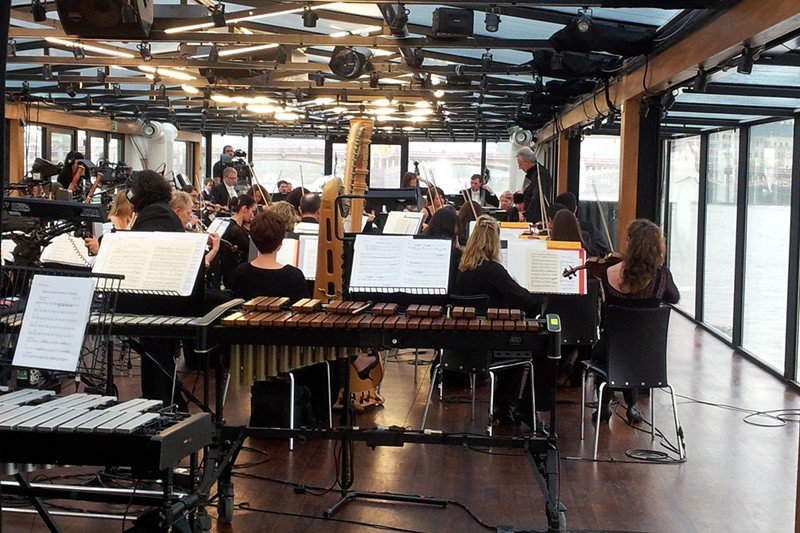
The London Philharmonic Orchestra in the Golden Jubilee, 2012 - matching music to London landmarks
Percy Grainger’s Country Gardens was played as their barge passed the home of the Chelsea Flower Show, the Royal Hospital Chelsea; Eric Coates’s tribute to 617 Squadron, The Dam Busters, sounded as they came past the RAF Memorial; as they sailed alongside the Secret Intelligence Service HQ, they played the James Bond Theme!
It was a musical map, highlighting how music is indelibly linked to the landscape and spirit of its time (incidentally, a key theme in the LPO’s 90th anniversary 2022/23 season).
Music is a living, breathing, emotion-fuelling reflection of our times, and nothing could make this clearer than a Jubilee. Bunting at the ready…
For more information on Platinum Jubilee concerts and events around the world, and to register your own, visit: platinumjubilee.gov.uk
Welcome to Gramophone ...
We have been writing about classical music for our dedicated and knowledgeable readers since 1923 and we would love you to join them.
Subscribing to Gramophone is easy, you can choose how you want to enjoy each new issue (our beautifully produced printed magazine or the digital edition, or both) and also whether you would like access to our complete digital archive (stretching back to our very first issue in April 1923) and unparalleled Reviews Database, covering 50,000 albums and written by leading experts in their field.
To find the perfect subscription for you, simply visit: gramophone.co.uk/subscribe




